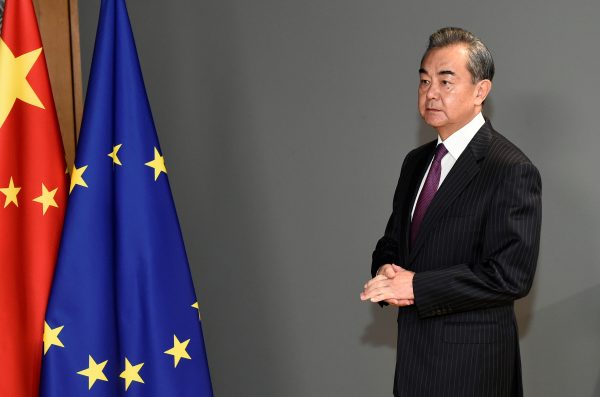COVID-19 is shrinking Beijing’s limited willingness to give in to European demands on unfair trade practices and more ambitious measures to curb climate change. This only adds to growing discomfort in the European Union over at least three developments shaping the relationship since 2016.
First, the perception among European policymakers and the traditionally optimistic European business community of China as an unfair competitor has increased significantly. Second, European assessments of political developments in China are increasingly negative regularly concluding that China under President Xi Jinping is turning even more authoritarian and nationalist. Beijing’s handling of demands for political reform in Xinjiang and Hong Kong only fuel European perceptions of a systemic difference between China and the European Union. Third, many EU officials worry that Chinese diplomacy is undermining European unity.
China’s targeted diplomacy highlights fractures in European China policy. While bilateral meetings never irritated Brussels, the 16+1 format, later known as the 17+1 format after Greece joined in 2019, includes China plus 17 central and central-eastern European countries, including 12 EU member states. Critics suggest that some government officials — such as those in Hungary and Greece — refused to criticise China, despite most EU member states advocating for a strong common position. Italy’s signing of a Belt and Road Initiative Memorandum of Understanding is yet another significant example of an EU country breaking ranks with European foreign policy unity. Recent criticism that the European External Action Service watered down a report on Chinese disinformation during the COVID-19 crisis is not convincing. Only days later, however, marking 45 years of diplomatic relations, EU Ambassador Nicolas Chapuis accepted to censor a passage in a remarkably friendly-toned op-ed published in China Daily co-authored by all EU ambassadors to China.
In 2019 the European Union adopted a new EU–China strategic outlook, describing China not only as a ‘partner’ but also an ‘economic competitor’ and ‘systemic rival’. The new European Commission characterises itself as a ‘geopolitical’ one. What appears to most observers an empty phrase might turn out to be a substantial EU policy shift on China. The new European Commission seems to be willing to adopt a ‘whole-of-Commission’ approach to EU–China relations. It now internally coordinates strategic objectives more closely to better leverage European power to achieve its core interests. But this new geopolitical turn is in its very early stages and there is no consensus over its priorities.
At the same time, Europe lacks unity and very different challenges now shape its relations with China. Widespread hope among central-eastern, eastern and southern European countries for major Chinese investments, after disappointment over EU solidarity in the global financial and the Euro crises that led Eurosceptics to gain influence, was followed by disenchantment. China’s foreign direct investment — once seen as an opportunity to gain more independent from the EU — was mostly directed towards high-technology industries in the continent’s north and west. At this point in time, a similar dynamic could occur in the COVID-19 crisis: the early successes of China’s mask diplomacy seem to have evaporated and the COVID-19 crisis may damage China’s reputation in the long term.
Growing rivalry between the United States and China is leaving its imprint in Europe. Poland and the Baltic states aim to maintain strong transatlantic partnerships because they perceive NATO and the United States as crucial security guarantors. But other EU member states, including Germany and France, are adopting a more critical approach towards US China policy.
The future of EU–China relations will largely be determined by four factors, of which China has influence over only one.
First, much will depend on whether or not EU member states — particularly the Eurogroup — will show solidarity in overcoming the economic consequences of COVID-19. EU solidarity will decrease European appetite for Chinese foreign direct investment and reduce China’s influence in some member states including Hungary, Croatia, Greece, Portugal and Italy.
Second, further integration of policymaking — most importantly the introduction of qualified majority voting on EU foreign and defence policy — could make Europe less vulnerable to China’s divisive tactics and strengthen EU cohesion.
Third, the US presidential elections in November 2020 and the question of what kind of China policy the United States will adopt from 2021 will prove decisive for EU–China relations. A litmus test will be how EU member states work with the European Commission and the European Union Agency for Cyber Security. The question to be answered is to what extent Huawei will be able to participate in the rollout of 5G infrastructure in Europe.
Fourth, domestic economic liberalisation in China that levels the playing field for European businesses in China could make the European Union reconsider its policy choices. Adopting a tougher approach was largely driven by the European business community and could be reversed by it. But a fundamental change in Chinese economic policy is unlikely, not least because economic relations are undergoing securitisation in both Europe and China.
Across Europe, perceptions of China are turning more critical. A debate leading up to an urgently-needed consensus should consider the protection of EU citizens and entities, address the gravest violations of international norms that the European Union considers to be constitutive and recognise the fields in which it has the most leverage. Only if Europe finds consensus over policy prioritises and instruments along these three criteria can it positively shape its China relationship with autonomy.
Dr Tim Rühlig is a Research Fellow at The Swedish Institute of International Affairs.
This article is part of an EAF special feature series on the novel coronavirus crisis and its impact.

